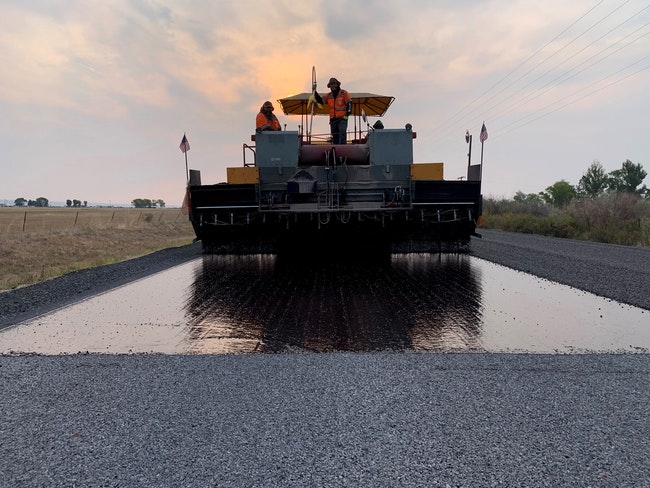
A federal infrastructure bill passed by Congress on Friday, Nov. 5, opens the way for major projects in Oregon. (Oregon Department of Transportation)
Oregonians should see work start next year on transportation projects funded by the massive infrastructure bill, according to U.S. Rep. Peter DeFazio, D-Oregon.
DeFazio said Oregon will get better highways, repaired bridges and ports dredged to ease commerce.
He said in a press briefing last week that passage of the Infrastructure Investment and Jobs Act by Congress means “we will see a lot of activity in the construction season next year. These things are ready to go.”
The $1.2 trillion package includes an estimated $3.4 billion that will flow to Oregon for transportation projects over the next five years and DeFazio said there is a “sense of urgency” to get them underway.
“This is the largest single investment in transportation infrastructure since the construction of the national highway system,” said the Oregon Democrat who represents the 4th Congressional District, in the Eugene area.
DeFazio, chair of the House Transportation Committee, recounted years he spent in Congress advancing such projects.
He noted the price of the package is less than what President Donald Trump once proposed.
The congressman recalled being in a meeting planned after Trump announced in March 2020 his own $2 trillion infrastructure package.
“Two weeks later, he walked in, said if you’re going to investigate me, then I’m not going to work with you. He slammed the door and walked out,” DeFazio recalled.
He also noted that key details of the infrastructure package – including how to pay for the work – was hashed out by a bipartisan group of senators over the summer.
That included U.S. Sens. Rob Portman, R-Ohio, Susan Collins, R-Maine, Mitt Romney, R-Utah, Lisa Murkowski, R-Alaska, Bill Cassidy, R-Louisiana, Kyrsten Sinema, D-Arizona, Joe Manchin, D-West Virginia, Mark Warner, D-Virginia, Jeanne Shaheen, D-New Hampshire, and Jon Tester, D-Montana.
The legislation passed the Senate 69-30.
About half the funding detailed in the bill had already been budgeted. According to a Congressional summary, the remaining projects would be covered by using $210 billion in unused pandemic relief funds, $53 billion in unemployment funds unused by states, and $51 billion by delaying a Medicare rebate change.
The summary also projects that $56 billion comes from “a 33 percent return on investment in these long-term infrastructure projects.”
“I don’t think it’s deficit neutral but it is substantially paid for,” DeFazio said.
He noted business regularly borrows to invest in expansions.
“They borrow money to invest and they reap the returns,” DeFazio said.
The legislation passed the House with 13 Republican votes. U.S. Rep. Cliff Bentz, Oregon’s lone Republican in the House, voted against it.
The Republicans who did support the package have reported an avalanche of calls and emails attacking their vote. DeFazio said those representatives have been getting death threats.
“It’s crazy,” he said.
DeFazio said the bill reflects needs in Oregon. He said he had a conference call with county commissioners earlier this year, noting that “most of the counties in Oregon are red.”
The commissioners said “their number one priority was water, wastewater followed by bridges and then highways,” DeFazio said.
“We have massive needs in Oregon for wastewater and water,” he said.
He said the current shortage of labor shouldn’t impede the infrastructure projects, which will provide well-paying jobs.
“People are abandoning jobs where they have been exploited and paid low wages,” DeFazio said. “It’s time for a wage increase for Americans. Middle class America has basically been frozen in place.”
He said labor unions could help.
“Warm up your apprenticeship programs. Think about getting a bigger space,” DeFazio said he’d advise unions.
Oregon Capital Chronicle is part of States Newsroom, a network of news bureaus supported by grants and a coalition of donors as a 501c(3) public charity. Oregon Capital Chronicle maintains editorial independence. Contact Editor Les Zaitz for questions: [email protected]. Follow Oregon Capital Chronicle on Facebook and Twitter.
NEWS TIP? Please send an email to [email protected] for our reporters to consider.




